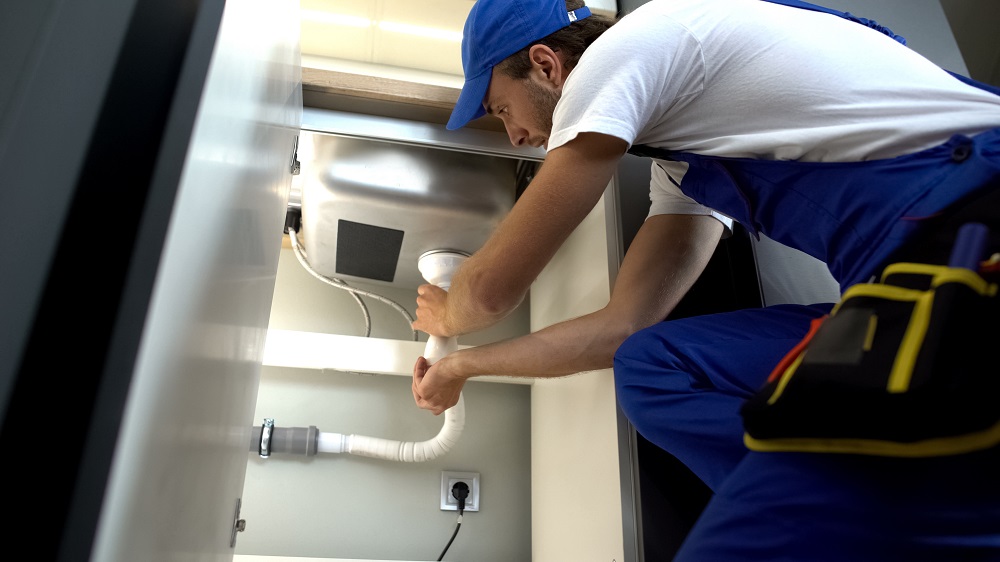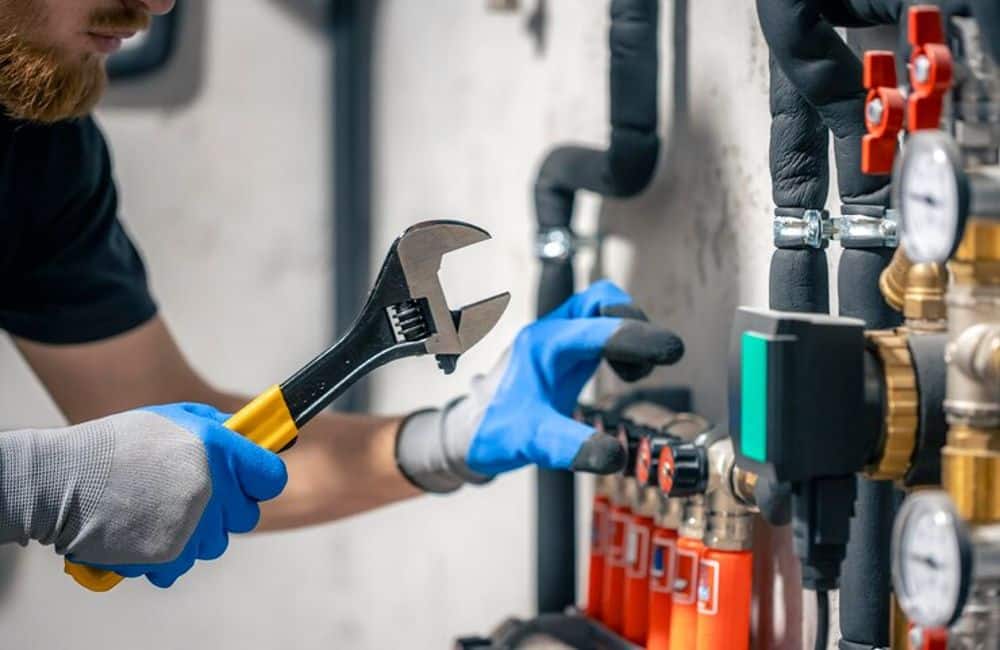Urgent Repair Advice: Ways to Manage Issues Until Assistance Arrives
Urgent Repair Advice: Ways to Manage Issues Until Assistance Arrives
Blog Article
They are making a few good observations on the subject of Expert Tips for Emergency Plumbing Repairs as a whole in this post in the next paragraphs.

Pipes emergency situations can strike any time, creating anxiety and prospective damages to your home. Whether it's a burst pipeline, a clogged up drainpipe, or a dripping tap, understanding just how to handle the situation until a professional plumbing professional gets here can conserve you from additional problems. This short article provides essential emergency pipes ideas to assist you reduce damage and regain control throughout a pipes dilemma.
Turn Off the Water Supply
The very first step in any kind of plumbing emergency situation is to shut down the water. For local issues, such as a dripping tap or bathroom, turn off the shutoff near the component. In the case of a major leakage or burst pipe, situate your home's primary water shut-off valve and transform it off promptly. Understanding the location of these shutoffs in advance can save beneficial time throughout an emergency situation.
Shut down Your Water Heater
In certain emergency situations, such as a burst pipeline, it's smart to shut off your hot water heater. This stops overheating or damages to the system when water stops moving. Turn off the power supply to the hot water heater (electric or gas) and let it cool off to avoid possible risks.
Temporarily Stop a Burst Pipeline
A burst pipeline can result in substantial water damage in mins. To reduce the issue:
Call a professional plumbing technician immediately to attend to the trouble permanently.
Have an Emergency Situation Plumbing Set
Prepare a standard plumbing emergency situation kit to manage small issues successfully. Your kit must include:
Having these devices accessible can make a significant distinction in your ability to handle emergency situations.
Unclog Drains Pipes Safely.
A stopped up drainpipe can be a frustrating and untidy concern. Below's how to tackle it:.
If these methods don't work, stay clear of using excessive force, as it may intensify the obstruction.
Handle Overflowing Toilets.
An overruning commode can create prompt chaos. Here's what you should do:.
Address Little Leakages with Short-term Repairs.
Small leaks can swiftly end up being considerable problems if left unchecked. Make use of these short-lived solutions up until professional aid gets here:.
While these repairs aren't permanent, they can help reduce water loss and damage.
Take Care Of Frozen Pipes Very Carefully.
In chillier environments, icy pipes are a common emergency situation. If you believe a frozen pipeline:.
Know When to Call a Specialist.
While quick fixes can assist momentarily, certain pipes problems require instant professional interest. Call a plumbing if:.
Immediately calling a professional ensures the problem is dealt with appropriately and avoids more problems.
Protect against Additional Damages.
Taking quick activity to reduce damages can save you time and money in the future. Here's exactly how:.
Final thought.
Pipes emergencies can be frustrating, yet with the best expertise and tools, you can handle the scenario efficiently up until help shows up. By turning off the water system, addressing little leakages, and using short-term repairs, you can lessen damages and keep your home safe. Keep in mind, these pointers are temporary solutions; always seek advice from an accredited plumbing professional to handle the source of the trouble. Prep work and quick reasoning are your ideal allies in any plumbing emergency situation.
8 Helpful Tips for Managing Plumbing Emergencies at Home
If your plumbing system hasn’t failed once, wait for it because almost everyone has a story to tell. Sometimes, it could be simple emergencies such as a leaking pipe, a blocked cistern, or even a big burst pipe. In situations like this, you need to have some handy tips to save you some money and from possible damages.
Take care of minor issues early.
Sometimes, you could have avoided an emergency by taking proactive measures while it was still early. Some major plumbing emergencies can be a result of an ignored minor issue. We recommend that you have items like plumbing tapes and other related items. A plumbing tape can allow you to manage minor leaks before the plumber arrives.
Cut off the water supply.
This tip is essential in almost any type of leakage problem. For problems like minor leakages in the toilet or kitchen, turn off the supply that takes water to the affected pipes. If the leakage is a major pipe, you must shut off the supply valve to the entire building. This will help you avoid flooding your home and neighbors if you share a flat.
Know your plumbing system
Folks typically move into a new apartment without understanding the water supply around the building. This can prove disastrous if a water emergency arises and the plumber is far away. The previous tip will prove useless if you don’t practice this one. More importantly, know where your water shut-off valve is located – you’ll need that knowledge to prevent potential home floods.
Have some common handy tools
There are lots of plumbing emergencies that you can handle without hiring a plumber. That’s why you must keep some tools available always. Some tools that you can use to fix simple plumbing emergencies easily include plumbing tapes, screwdrivers, thread seal tapes, plungers, pliers, tape measures, and rubber gloves.
Insulate your pipes from cold
You’ll save yourself from many plumbing expenses if you protect your water pipes from the cold. This is because of the harmful effects that cold weather can have on your pipes. During winter, your pipes can burst from being overly expected to freezing temperatures. So, make sure insulators are there to keep the pipes working correctly.
Avoid practices that will clog your toilet.
Many people indulge in practices that can damage the plumbing system of the entire building. One of these is when they use their toilet to dispose-off garbage. They flush all kinds of things, such as paper towels, bandages, hairs, female sanitary products, etc., down the toilet. This will block your toilet in the long run, incurring unnecessary expenditures. Dump such waste in the trash instead.
Check your dials regularly.
Sometimes, there could be leakages in your home without noticing them in time. So, constantly monitor your water meter dial. If the dial is reading when there is nobody using water, this is an indicator that there is leaking. Check for leaks immediately. Call a plumber as soon as possible if you can’t find any.
https://www.constructionplacements.com/8-helpful-tips-for-managing-plumbing-emergencies-at-home/

I came across that piece about Plumbing Emergencies: Tips on What To Do Before when surfing around the internet. Feel free to take the time to share this blog posting if you appreciated it. I love reading our article about Expert Tips for Managing a Plumbing Emergency Until Help Arrives.
Book Your Appointment Report this page